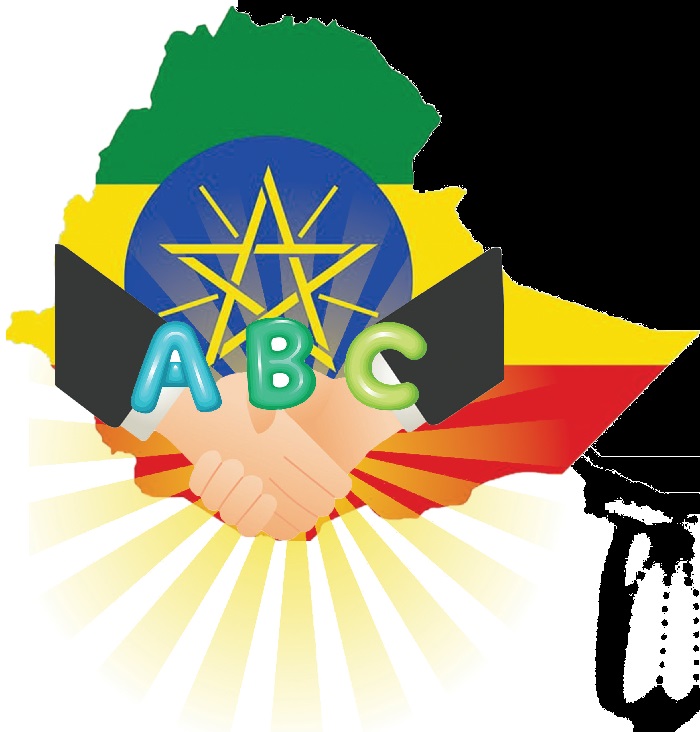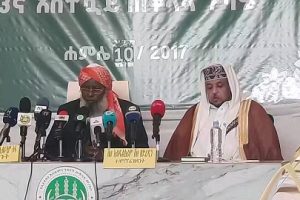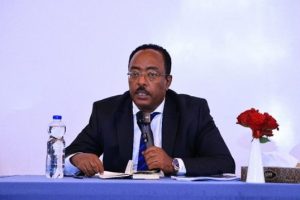
In his recent press conference, Prime Minister Dr. Abiy Ahmed has stressed the importance of guiding the nation’s foreign policy on the principles of Activation, Balance and Common Ground which he summarized as the principles of “ABC”.
Outlining ABC as core diplomatic elements, Abiy said the country’s foreign policy and diplomatic activities shall be guided by timely requirements which include activation, balance and common ground.
He also revealed that the country has brought significant progresses in terms of foreign relations ever since the reform process comes to the spotlight. Mentioning the Ethio- Eritrea rapprochement and Ethiopia’s role in mediating Sudanese conflicting parties, the Prime Minister pinned his hope on pursuing cordial relations with foreign countries.
The fact that the prime minister tried to guide the country’s foreign relation from the perspective of the three elements is very decisive and timely. The elements are core principles in maintaining inclusive, balanced relations with other countries neighboring or others, Leulseged Girma, a geopolitical researcher at Foreign Relations Strategic Studies Institute.
Unless the entire region finds itself in the right track, it proves to be very challenging for a country to actualize its foreign policy aspirations. Hence, countries need to attempt to find common grounds where they can collaborate on ranges of mutual concerns for collective gains. The common grounds may include peace, stability and fighting terrorism.
On the other hand, unlike previous trends, Ethiopia’s diplomatic undertaking should strike a balance among its different partners. As far as the country aspires to ensure its national interests, there should no country which it should not work with. And it behooves the country to find itself in the right track when dealing with multilateral issues or alliances. That is what Abiy meant is balance, according to Luelseged.
Now that the government has set its priorities and strategic issues with the new foreign policy, scholars are also calling for more attention in pulling more professional people into the diplomatic communities. In fact, the government has received acclamation from different people with its appointments of ambassadors who have mainly presented their credentials to the country they are posted lately.
The appointments of ambassadors have been largely seen as a departure from previous party-oriented path. Arguably, the country pulled more diverse community amidst the ongoing reform. Previous appointments had been lambasted for being party centered and for not comprising professional competence.
Previous appointments of diplomatic positions, including ambassadorships had been politically made a trend that compromises the art of diplomacy said, Hasabu Tesfa, a lecturer at Debre Birhan University Department of Political Science and International Relations.
Political affiliation with the ruling has long been the main card in the deployment of ambassadors and diplomats, he added. “We have seen even people proving incompetence at various government capacities picking up key diplomatic positions, even in embassies of strategic importance,” he says, adding that: “This has been undermining the very essence of diplomatic missions.”
This time, with the Horn geopolitics and international political situation seeing rapid changes, assigning refined diplomats and redefining foreign policy are must-do tasks. To him, the government has been over emphasizing on partisanship for years. There were even attempts to use appointments to isolate critics within the ruling party as well as appease inefficient party members, according to the lecturer.
The country should move into merit-based diplomacy in which right and qualified people are appointed to serve the very interest of the nation. The country needs to form a diplomatic mission comprised of scholars, influential individuals and the likes, he indicated.
Multi-polar and geopolitical order is shaping foreign relations; hence, Ethiopia’s foreign policy should play into these by appointing efficient diplomats with particular focus on the neighboring and Middle East countries. In this regard, it behooves more responsibility from the newly appointed ambassadors or diplomats in putting the country in the right path of diplomatic cooperation, said Abebe Aynete, a researcher with Ethiopian Foreign Relations Strategic Studies Institute speaking to The Ethiopian Herald previously.
Appointment of diplomats should be in line with fostering political alliance, strengthening economic cooperation, scaling up citizens’ protection abroad and upgrading consular services both for citizens and foreign nationals, he added.
Ambassadors and diplomats should be one who can serve their country and do not compromise national interests over courses of government or political changes. Diplomacy is a strong weapon to secure national interests at the global frontiers, he argued. The Horn is in states of flux. So, the country’s foreign policy must give greater attention to ensuring healthy and strong policy towards the region.
A diplomat or ambassador should only represent the national interest—be it economic, political or social ones. To materialize this, appointments must be on the basis of merit, he says.
The Ethiopian Herald, August 9/2019
BY DESTA GEBREHIWOT





